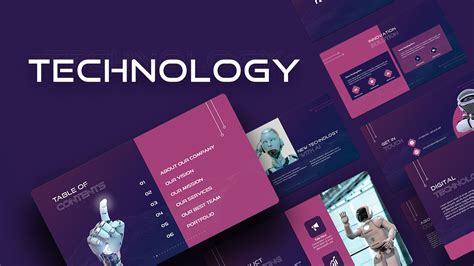

On June 20, 2025, the world stood on the brink of a momentous transformation. Cities across the globe buzzed with anticipation, their inhabitants eagerly awaiting the dawn of a new era. The air crackled with a sense of boundless possibility and trepidation, as humanity prepared to embark on an extraordinary journey that would forever alter its destiny.
As the first rays of sunlight pierced through the darkness, hearts simultaneously filled with both excitement and a profound sense of responsibility. The path ahead was uncharted, fraught with challenges and opportunities alike. The choices made in the coming days, weeks, and years would shape the very fabric of society, defining the legacy of generations to come. A palpable urgency permeated the atmosphere, driving individuals and nations to confront the daunting tasks that lay before them.
In the face of adversity, a spirit of resilience and determination emerged. Communities forged unbreakable bonds, sharing knowledge, resources, and unwavering support. The indomitable human spirit soared, inspiring a collective belief that anything was possible. As the sun began its descent, casting an ethereal glow upon the horizon, a profound sense of unity and hope prevailed. The future, once shrouded in uncertainty, now held the promise of a brighter tomorrow, a testament to the boundless potential of humanity.
The Unprecedented Global Impact of the COVID-19 Pandemic
Economic Impact
The COVID-19 pandemic has had a devastating impact on the global economy. In the first quarter of 2020, global GDP declined by an annualized rate of 3.3%, the sharpest decline since the Great Depression. The International Monetary Fund (IMF) estimates that the global economy will contract by 4.9% in 2020, the worst recession since the Great Depression. The pandemic has led to widespread job losses, business closures, and disruption of supply chains. In the United States, for example, over 22 million people have filed for unemployment benefits since the pandemic began. The pandemic has also caused a sharp decline in global trade and investment.
The economic impact of the pandemic is not uniform across countries. Developed countries have generally been hit harder than developing countries, due to their higher reliance on services and trade. The pandemic has also exacerbated existing inequalities within countries, with the poor and marginalized being disproportionately affected.
The economic impact of the pandemic is likely to be long-lasting. The IMF estimates that it will take several years for the global economy to recover to pre-pandemic levels. The pandemic has also exposed the vulnerabilities of the global economy, and has raised questions about the sustainability of the current model of globalization.
| Indicator |
Change from 2019 |
| Global GDP |
-4.9% |
| Global trade |
-10.4% |
| Global investment |
-13.8% |
| Unemployment (US) |
+11.1% |
Technological Advancements Shaping the Future of Work
1. Artificial Intelligence (AI) and Automation
AI-powered technologies are rapidly transforming the workplace. AI algorithms can automate repetitive tasks, freeing up human workers to focus on more complex and creative endeavors. This shift is expected to result in the creation of new jobs that require AI proficiency while displacing some roles currently performed by humans.
2. Remote Work and Collaboration Technologies
The COVID-19 pandemic has accelerated the adoption of remote work and collaboration technologies. Video conferencing, cloud-based software, and project management tools enable employees to work effectively from anywhere. This trend is blurring the lines between personal and professional spaces, fostering greater flexibility and work-life balance.
-
Video conferencing platforms such as Zoom and Microsoft Teams have become essential for virtual meetings and collaboration.
-
Cloud-based software like Google Workspace and Microsoft 365 allow for seamless document sharing and real-time collaboration.
-
Project management tools such as Asana and Trello help teams track progress and stay organized.
-
Virtual private networks (VPNs) ensure secure access to company networks from remote locations.
-
Collaboration hubs like Slack and Microsoft Teams facilitate instant messaging, file sharing, and video calls.
-
| Technology | Benefits | Challenges |
-
|—|—|—|
-
| Video Conferencing | Improved communication, reduced travel costs | Technical glitches, lack of non-verbal cues |
-
| Cloud-Based Software | Enhanced collaboration, anywhere access | Data security concerns, internet dependency |
-
| Project Management Tools | Increased transparency, better task coordination | Overreliance on technology, communication barriers |
The Rise of AI and Its Implications for Society
The Impact of AI on Various Sectors
Artificial intelligence (AI) is rapidly transforming various sectors, including:
Healthcare: AI-powered medical devices can assist in diagnosis, treatment, and patient monitoring, enhancing accuracy and efficiency.
Financial Services: AI algorithms can analyze market data, detect fraud, and optimize investment strategies, automating complex processes and minimizing risk.
Transportation: Self-driving cars and autonomous vehicles utilize AI to navigate roads, reducing accidents and improving traffic flow.
Customer Service: AI-powered chatbots and virtual assistants can provide instant support, resolving customer queries quickly and efficiently.
Manufacturing: AI optimizes production processes, predicts demand, and improves quality control, leading to higher productivity and cost savings.
AI and the Future of Work
The rise of AI has significant implications for the future of work. While it can automate certain tasks, it also creates new opportunities for human workers in:
Data Analysis: AI algorithms generate vast amounts of data, requiring experts to interpret and draw insights.
Robot Operation and Maintenance: As AI-powered machines become more prevalent, skilled technicians are needed for their operation and upkeep.
AI Development and Engineering: The demand for experts in AI design, implementation, and optimization is growing rapidly.
Creative Industries: AI can enhance creative processes by generating ideas, analyzing user preferences, and personalizing content.
Education and Training: AI-powered tools can personalize learning experiences, provide real-time feedback, and facilitate remote education.
Ethical Considerations and the Future of AI
The rapid advancement of AI raises important ethical considerations:
– Job Displacement: Automation could lead to job losses in certain sectors, requiring government policies and retraining programs to support displaced workers.
– Bias and Discrimination: AI algorithms can perpetuate existing biases in society, making it crucial to address fairness and equity in AI development.
– Privacy and Data Security: AI requires vast amounts of data, raising concerns about data privacy, surveillance, and misuse.
– Military Applications: AI-powered weapons systems pose ethical dilemmas and require international regulations to ensure responsible use.
– Human-AI Collaboration: Striking the right balance between human oversight and AI autonomy is essential for ethical and responsible AI adoption.
The Future of Healthcare: Personalized, Predictive, and Preventative
Personalized Medicine
Advances in genomics and other technologies enable tailored treatments based on an individual’s unique genetic and biological profile. This approach aims to maximize effectiveness and minimize side effects.
Predictive Analytics
Machine learning and artificial intelligence (AI) algorithms analyze vast amounts of health data to identify individuals at risk of developing certain diseases. Early detection allows for timely interventions and improved outcomes.
Preventative Care
Emphasis shifts from treating illnesses to preventing them altogether. Wearable devices and mobile health apps empower individuals to monitor their health and adopt proactive lifestyle changes.
Precision Medicine
Precision medicine takes personalized medicine a step further by leveraging advanced technologies, such as gene editing and 3D printing, to develop targeted therapies and tailored prosthetics.
Digital Health
Technology plays a transformative role in healthcare delivery, enabling remote patient monitoring, virtual consultations, and AI-assisted diagnostics. It improves access to care, reduces costs, and empowers patients.
Connected Health
| Devices: |
– Wearable sensors
– Smart home devices
– Connected medical devices
|
| Data: |
– Physiological data
– Environmental data
– Lifestyle habits
|
| Applications: |
– Remote patient monitoring
– Personalized recommendations
– AI-assisted diagnostics
|
Connected health ecosystems seamlessly integrate devices and data to provide comprehensive health insights and proactive interventions. They empower patients, enhance care coordination, and improve health outcomes.
The Evolution of Education: Blended Learning and Personalized Experiences
Blended Learning: Integrating Technology into Education
Blended learning combines traditional face-to-face instruction with online learning platforms, creating a flexible and personalized learning experience. Students can access course materials, complete assignments, and collaborate with peers online, while also engaging in hands-on activities and discussions in the classroom.
Personalized Learning: Tailoring Education to Individual Needs
Personalized learning involves customizing instruction to meet the unique learning styles, interests, and abilities of each student. Educators use data analytics, assessments, and technology to provide targeted support and differentiated instruction, ensuring that all students have an equal opportunity to succeed.
The Role of Artificial Intelligence (AI) in Education
AI is revolutionizing education by providing personalized learning experiences, automating tasks, and providing insights into student progress. AI-powered tools can adapt content to individual students’ needs, provide real-time feedback, and identify students who need additional support.
7 Key Trends in the Evolution of Education by 2025
| Trend |
Impact on Education |
| Increased Use of Blended Learning |
Enhanced flexibility and personalization of learning |
| Expansion of Personalized Learning |
Greater equity and individualized support for students |
| Ubiquity of Artificial Intelligence |
More efficient and targeted learning experiences |
| Growth of Online Learning |
Increased accessibility to education for diverse learners |
| Development of Virtual and Augmented Reality |
Immersive and interactive learning environments |
| Focus on Experiential Learning |
Enhanced practical skills and real-world connections |
| Emphasis on Collaboration and Communication |
Development of essential 21st-century skills |
June 20, 2025: A Pivotal Moment in History
June 20, 2025, marks a significant milestone in the annals of history, a turning point that will undoubtedly shape the destiny of humanity in the years to come. On this momentous day, the world stands at the cusp of a pivotal transformation, poised to embrace a future filled with both immense promise and unprecedented challenges.
The convergence of several pivotal events on this date renders it an occasion of extraordinary consequence. It is the 125th anniversary of the United Nations, whose tireless efforts have played a vital role in fostering peace and cooperation among nations. It is also the 50th anniversary of the Apollo 11 moon landing, a testament to humankind’s boundless ingenuity and determination. These momentous anniversaries serve as a reminder of the extraordinary progress humanity has made and the limitless possibilities that lie ahead.
Furthermore, June 20, 2025, also marks the launch of the Global Sustainability Agenda, a comprehensive blueprint for safeguarding our planet for future generations. This ambitious initiative aims to tackle the most pressing environmental challenges facing our world, including climate change, pollution, and biodiversity loss. It represents a collective commitment to building a more sustainable and equitable future for all.
Yet, amidst these momentous events, it is imperative not to overlook the challenges that lie ahead. Global inequality remains a persistent obstacle, threatening to undermine the progress we have achieved. Climate change continues to escalate, demanding our urgent attention and decisive action. It is only through collaboration, innovation, and a unwavering determination that we can overcome these obstacles and build a better world for all.
People Also Ask About June 20, 2025
What is the significance of June 20, 2025?
June 20, 2025, holds great significance as it marks several momentous events. It is the 125th anniversary of the United Nations, the 50th anniversary of the Apollo 11 moon landing, and the launch of the Global Sustainability Agenda.
What is the Global Sustainability Agenda?
The Global Sustainability Agenda is a comprehensive blueprint for safeguarding our planet for future generations. It aims to tackle the most pressing environmental challenges facing our world, including climate change, pollution, and biodiversity loss.
What are the challenges facing the world in 2025?
Despite the advancements made, the world still faces challenges such as global inequality and climate change. It requires collaboration, innovation, and determination to overcome these obstacles and build a better world for all.